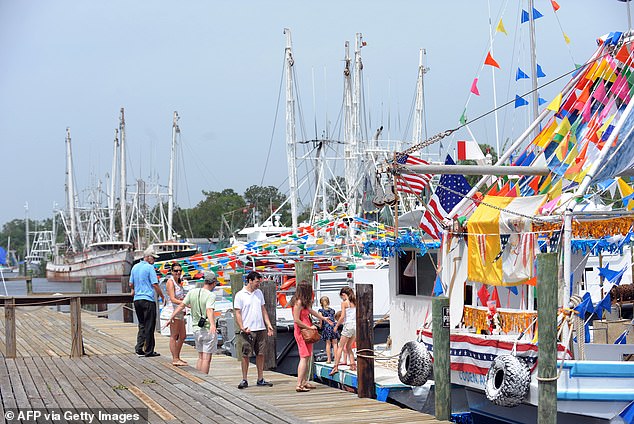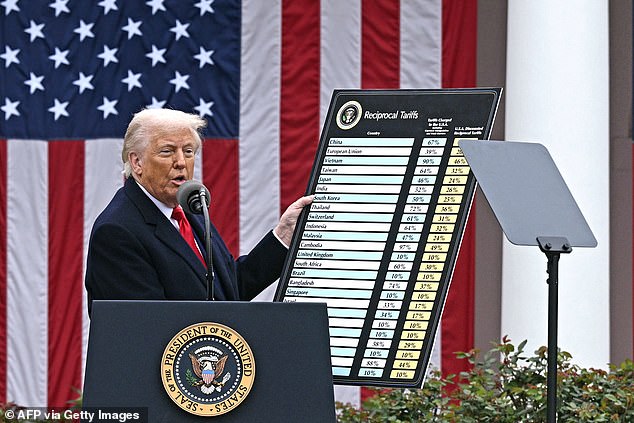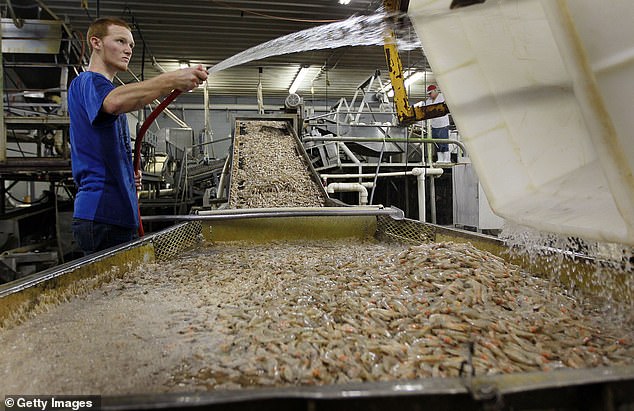Featured
- Get link
- X
- Other Apps
Why a Small Gulf Town Is Thrilled with Trump's Tariffs
People living in a small coastal village recently rechristened Gulf of America are rejoicing over President Trump's contentious tariff proposal following their economy being devastated by inexpensive imports.
Jeremy Zirlott, who works as a commercial shrimp fisherman in Bayou La Batre, Alabama He couldn’t scarcely believe it when he witnessed Trump announcing tariffs on imports from various countries worldwide last week.
But while Global markets responded with shock. to the plan, Zirlott told the Wall Street Journal to him, it appeared almost unreal.
Trump's tariff plan will impose heavy levies on nations that export the majority of America's shrimp, including a hefty 46 percent tariff on Vietnamese imports and 32 percent on Indonesia .
These same imports had decimated the economy in Bayou La Batre in recent years, as the small fishing town couldn't compete with the influx of cheap farmed shrimp from overseas.
Income and sales tax revenue in the town fell around 40 percent between 2021 and 2024, and the town's Mayor Henry Barnes said he felt helpless as he watched the area's main industry falter.
'People were looking to me for answers, and I didn’t have them,' he said. 'The city can’t put tariffs on foreign seafood.'
Locals say they now have their hopes up for an economic boom as tariffs may force retailers to buy from American sources.



More than 90 percent of shrimp consumed in the US each year is currently imported, according to the U.S. International Trade Commission.
Barnes said he welcomed Trump regaining the White House in November's election because he hoped the president's America First ideology could save the US shrimping industry.
The mayor wrote Trump a letter after the election pleading for the new administration to impose tariffs on imported shrimp.
"We might return to how things were before," he stated.
Barnes mentioned that the town previously was like this busy center of action once the shrimping season started Each year, memories flood back of boat and truck convoys crowding the streets in previous times.
Today, 'it was nearly impossible to cross the street without being concerned about traffic,' he told the Wall Street Journal.
'Right now, you could practically inch your way across it since there isn’t anything happening.'
Zirlott mentioned that he was nearly compelled to close down his commercial shrimp business last year because of the economic challenges facing the sector.



He mentioned that his family has been involved in shrimp farming since the 18th century in the tiny coastal town, expressing no remorse even though it involves lengthy hours at sea and an arduous way of life.
He remarked, 'I feel sorry for those who navigate through life without experiencing the thrill of landing a big catch.'
He remembered that about two decades ago, imported shrimp began causing problems in the region, leading to numerous rivals shutting down their businesses because they were unable to keep up with the competition.
While he survived through marketing his shrimp as higher quality and selling directly to wholesalers, Zirlott said the town was decimated in 2021 when import prices dropped dramatically.
This meant it was far more difficult for domestic shrimp farmers to keep up, and according to the WSJ, domestic US shrimpers on average went from operating at a 5.1 percent profit in 2021 to a 3.7 percent loss in 2023.
'I wound up with more product in the freezer than I ever had,' Zirlott said.
Read morePopular Posts
ABC Apologizes After Claudia Long Fabricates False Claims About Two High-Profile Politicians
- Get link
- X
- Other Apps
Oyetola Names Adeniran Aderogba New President/CEO of RMDB – Exclusive International Update
- Get link
- X
- Other Apps
Comments
Post a Comment